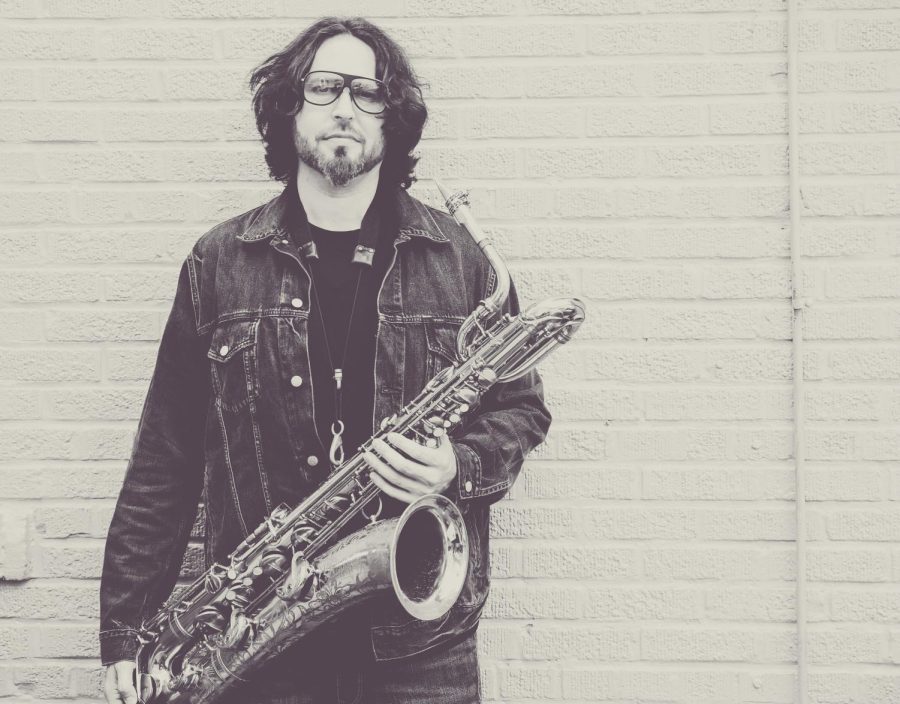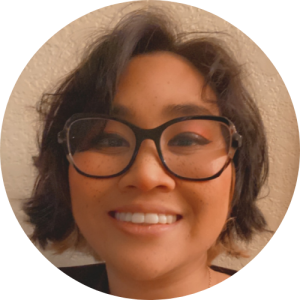Q&A: Top-ranked musician books new gig as Sac State assistant professor
Brian Landrus talks 20-year teaching career and releasing 10 albums
October 20, 2020
After a decade of performing with musicians such as Prince, Fred Hersch and The Temptations, esteemed saxophonist Brian Landrus joined Sacramento State as an assistant professor of jazz studies this fall semester.
Landrus, who has released 10 albums as a bandleader, multi-instrumentalist and composer, said he is excited to share some advice with his students, along with sharing some of his experiences as well. His newest album “For Now” has been recognized in publications such as Downbeat Magazine, JazzTimes Review and Monarch Magazine.
The State Hornet talked with Landrus about his music career and new position at Sac State.
Question: First, can you tell me how long you’ve been playing music? Where did you get your education in music?
Answer: Well I have been playing professionally since I was 14 to 15. I was playing in all the casinos and then touring with some of the Motown bands. After I got my bachelor’s in 2002, I moved to Boston, and then got a master’s in music at the New England Conservatory in 2007, and then moved to New York in 2007. I’ve been here for 13 to 14 years, and I got my Ph.D. at Rutgers in 2019. I’ve just been a professional musician since I was a kid. I’ve always, always loved it and just been fortunate to play with a lot of people.
Q: In your time as a musician, you’ve played with different artists. How do you describe that experience?
A: It’s been wonderful. I feel really fortunate that I’ve been able to play with a lot of my musical heroes. I feel very lucky. And all the years of practicing and everything works out. It really takes perseverance. The standout moments for me are like the first gig I did with The Temptations, we were playing their music that I heard so much growing up.
When I played with Prince, hearing someone on his level was incredible. He could play guitar on an incredibly, incredibly high level. He could play piano on an incredibly high level. He could sing his ass off obviously, and drums too and bass, and he played everything. I think that was something that was shocking to me, just to see someone like that was that brilliant.
I remember that Erykah Badu is an important artist that I’ve loved for a long time. I remember one time, I was on tour, and we were all going down to play in the Caribbean. I happened to be put next to her on a plane. So we were just sitting next to each other and we talked about life. It was just really interesting to be sitting next to someone that you know that you’re a huge fan of their work. It was fun just talking to her and just getting to know her.
Q: Do you have any teaching experience? You’ve just started as an assistant professor at Sac State, correct? What drew you to Sacramento State?
A: I’ve been teaching people to play for 20 years. I taught at Rutgers for five years, and then I taught some classes at the New England Conservatory before that.
As for choosing Sacramento State, it was a combination of a lot of things. I’ve been on the East Coast a long time, and I certainly love it in New York, but really I wanted to go back to the West Coast. My family’s out in Reno, so everyone’s close. There’s a lot of friends of mine that are out there. Sac is close enough to the Bay and there’s a lot of different things out there. New York is a pretty hard place to live in a lot of ways.
The director of the jazz department [at Sac State], Steve Roach, had a big play in this. He’s a close friend of mine and when he offered me the position I had to take it. In this weird twist of fate, one of the staff happened to be my old high school band director. I think you might know him, Clay Redfield. When I found that out, that was shocking. I have to give it up to Clay too, because I was a pretty wild kid. He was really supportive. He knew that I had this incredible hunger for music and was very, very serious.
Q: What was it like teaching at Rutgers? How did your experience teaching there compare to teaching classes at Sacramento State?
A: It’s a fantastic school. It was nice because I taught a lot of different courses there and I was able to work with people that were music majors, their desire was to be a professional musician. I was also teaching core curriculum classes, where it was to just non-majors, which was wonderful, just to touch a whole different group of students and really try to have some real positive impact on the general education of college students. That’s something that’s really rewarding. At Rutgers, I taught in the classical department and in the jazz department. It was a great experience to learn a lot of different things.
At Sac State, there’s much more of a relaxed energy. Rutgers is so close to New York, that there are a lot of really amazing students that come through there. But because of the competition there, the whole thing feels really uptight. But here at Sacramento State, I’m really happy working with musicians who are serious and want to become professional. I’m hearing such an amazing process in the students and that feels great. I’m really happy to help them grow and be part of their journey.
Q: During the pandemic, it’s been harder to teach classes, especially classes that require hands-on experience like music classes. How have you dealt with that? What are some positive and negative things about teaching music classes online?
A: We’re all adapting. One thing is that I’ve been teaching lessons online for many years, but it was more limited, there were a lot of students I’ve had over the years that are either international, or just in the U.S. somewhere else. So I’ve worked with that before.
Ideally, if you’re working with someone to play an instrument, it’s better to be in the room with them, and be able to do things that you can’t really do online.
But there actually are some advantages that I’ve been finding. When I’m working with students, where I’m teaching composition, for instance, I can pull up all sorts of different links and show them things, ‘just check this person out, listen to the song, listen to that.’ So that’s some stuff that hasn’t really been affected, if anything, it’s really positive.
Q: When did you realize that you were becoming a big name in the music industry? I know for some, it’s a hard and long road to stardom.
A: I guess if you’re in a lot of magazines all the time, you know if you’re in. Polls and the different ‘Best Of The Year’ lists, those kinds of things. It takes a long time. The competition, as you can imagine, is enormous.
For instance, my first two albums that I made in Reno, actually, they did well to prepare me for my future, but they certainly didn’t knock anyone out with how strong they were, but they were critical to my success later on.
I’ve now made 10 albums as a leader. I think probably around the fourth or fifth album I started getting international attention. It takes a lot of a lot of time.
Q: Swinging back to your first two albums, in what ways did they help to your success later on?
A: Artistic growth, but I think it’s broader than that. Maybe human growth? It’s learning what you don’t want to do and what you shouldn’t do, just as much as what you do want to do, right? If you don’t try things, you’re gonna be limiting yourself. Part of me recording the first two albums was learning about all the ways that I shouldn’t record my next albums. Once you have the ability to record, do it. Not just a small Youtube video or whatever, a whole album. Then when you have the chance, listen back on it. Myself, I just hear what I do wrong, and what I should have done differently.
I think when I first started recording, and especially when it’s recording my own music, you can really get stressed out about how things are going and how to plan things. I think the organizational aspect of putting together the albums was very important for me, coordinating with everyone to show up at what time and how to do this, how to market it, how to do that.
As for the first two albums, they didn’t get much luck. A lot of people at the record labels that I sent my albums out to told me that I probably wasn’t going anywhere with them, nobody was going to see it. I had my buddy who was a real graffiti artist and we went around spraying neon signs on the covers, I was trying everything possible so that the second album did better, but I still didn’t get picked up. I think that at that moment I realized I needed to get my artistic ability up. But it wasn’t just that. I tell all my students that artistic ability is the most important thing you have. You have to be a business person in this and we have to be able to market, you have to be able to be able to talk and do a lot of radio interviews and do all these things. Hire a publicist, be able to have a web presence, be able to be found when people type in your name. This will lead to success, you need to work for it and persevere.
Q: How long should one be practicing every day, in your opinion?
A: I mean, I haven’t during this pandemic, I haven’t been practicing as much as normal. I don’t know if a lot of people understand how much you have to practice. Like I said, I did six hours a day for 10 years, at least. At this point, you’re an athlete. Every 25 minutes I’d be playing, I would take a five-minute break and put ice packs on my wrists and my hands and I would wear wrist braces. And so it’s a routine, it wasn’t something that I took lightly. I don’t think it’s a coincidence that after that, that’s when my career took off.
Q: I like how you compared being a musician to being an athlete, it really helps give a visual. What advice do you have for your students, or anyone wanting to make a name for themselves in music?
A: Take every single gig you get offered. Students should take in opportunities whenever they can, because nobody knows where things are going to go. Some small gigs can lead to great things. I encourage students to not wait for anyone to give you an opportunity. You have to make them yourself.
































































































































